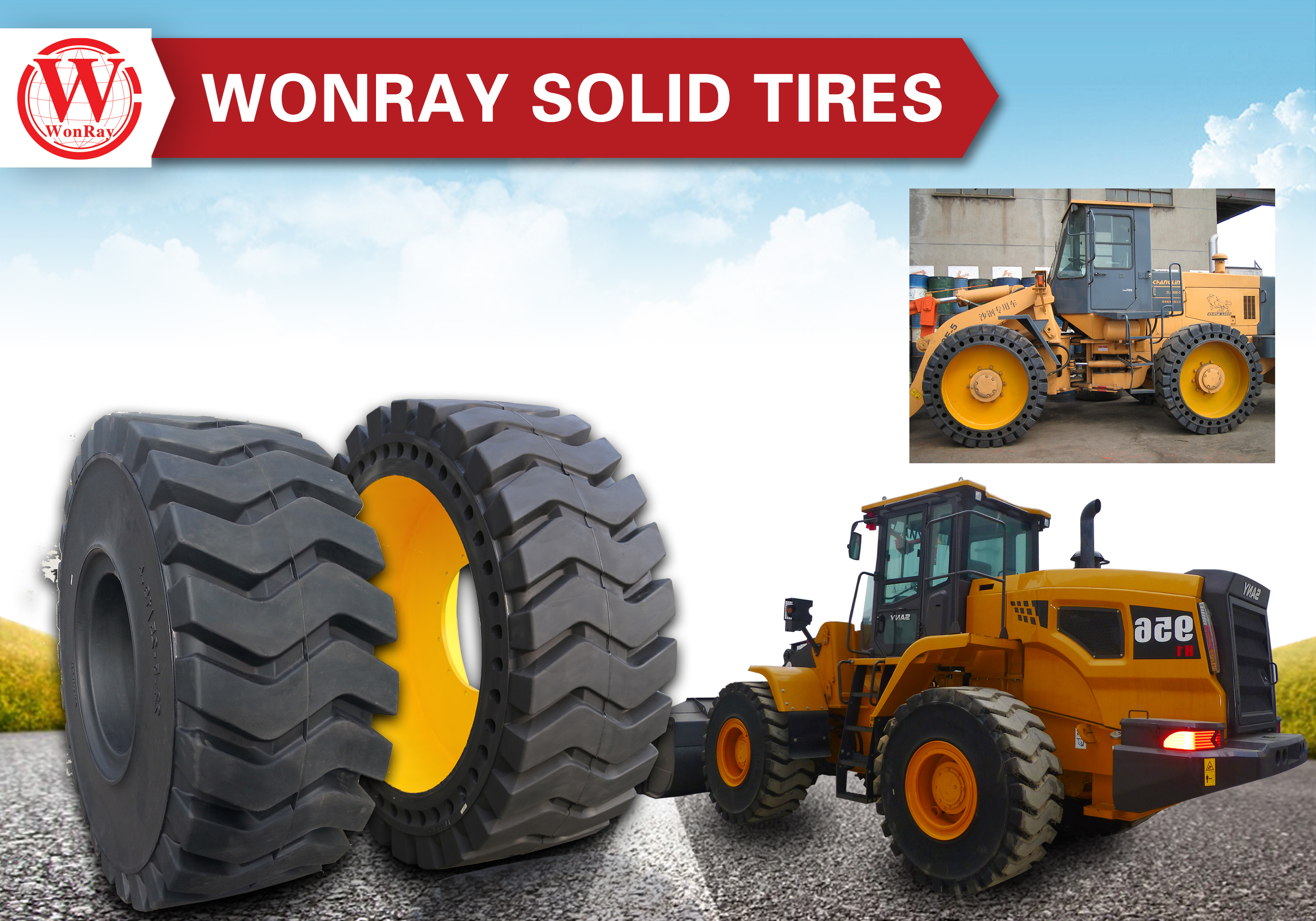In the world of heavy-duty machinery and logistics, every component is a link in the chain of efficiency. While the focus often falls on engine power or hydraulic systems, the foundation of any industrial vehicle’s performance—and a crucial driver of productivity—lies in its industrial tires. These are not just rubber rings; they are engineered solutions designed to handle immense loads, withstand harsh conditions, and provide the traction and stability that keep operations moving safely and efficiently.
Understanding the Different Types of Industrial Tires
Choosing the right tire for your application is critical. The options are vast, each with unique characteristics suited for different environments.
1. Solid Tires
Solid tires are made of durable, puncture-proof rubber compounds. They are ideal for applications where the risk of flats is high.
- Key Features: Puncture-proof, high load capacity, long lifespan.
- Best For: Warehouses, recycling centers, and scrapyards where sharp debris is common.
- Considerations: Do not provide cushioning, which can be hard on the equipment and the operator.
2. Pneumatic Tires
These are air-filled tires with a strong tread, similar to truck tires. They offer excellent shock absorption and are perfect for rough terrain.
- Key Features: Cushioned ride, superior traction, versatile for indoor and outdoor use.
- Best For: Construction sites, lumber yards, and other outdoor environments with uneven surfaces.
- Considerations: Vulnerable to punctures, which can lead to downtime.
3. Non-Marking Tires
A specialized type of solid or pneumatic tire, non-marking tires are made without carbon black, the pigment that causes black skid marks.
- Key Features: Protects floors, reduces cleaning and maintenance costs, improves facility aesthetics.
- Best For: Food and beverage facilities, retail warehouses, and pharmaceutical plants where hygiene and floor cleanliness are paramount.
- Considerations: Typically have a higher initial cost.
4. Press-On Tires
These tires consist of a rubber compound molded onto a steel band. They are designed for forklifts and other vehicles that operate on smooth, indoor surfaces.
- Key Features: High stability, excellent load-bearing capacity, compact design for tight spaces.
- Best For: Narrow-aisle warehouses and distribution centers with smooth, concrete floors.
- Considerations: Not suitable for outdoor or rough terrain applications.
The Value of Investing in Quality Industrial Tires
A quality tire is more than just a purchase—it’s an investment in your operation’s efficiency and safety.
- Increased Safety: Proper tires provide stability and traction, reducing the risk of accidents and tip-overs.
- Enhanced Productivity: The right tires can reduce rolling resistance, leading to improved fuel efficiency and a longer battery life for electric vehicles.
- Reduced Maintenance Costs: High-quality, durable tires wear slower and are less prone to damage, saving you money on replacements and repairs.
- Longevity of Equipment: Good tires absorb shocks and vibrations, protecting the vehicle’s components and extending its overall lifespan.
Summary: The choice of industrial tires is a strategic decision that directly impacts the safety, efficiency, and profitability of your business. By understanding the different types and their specific applications, you can ensure your fleet is equipped for peak performance, no matter the environment.
FAQ
Q1: How do I know which type of industrial tire is right for my business? A1: The best tire depends on your primary operating environment. For smooth, indoor floors, solid or press-on tires are ideal. For rough, outdoor terrain, pneumatic tires are a must. If floor cleanliness is critical, non-marking tires are the best choice.
Q2: How often should I replace my industrial tires? A2: Replacement frequency depends on usage and tire type. For solid tires, they should be replaced when the rubber has worn down to the wear line. For pneumatic tires, look for excessive tread wear, visible cracks, or a loss of air pressure. Regular inspections are key.
Q3: Can a quality industrial tire save me money? A3: Absolutely. While premium tires may have a higher upfront cost, their superior durability, reduced rolling resistance, and lower maintenance needs lead to significant savings over the long term in fuel costs, repairs, and labor.
Q4: Do industrial tires require any special maintenance? A4: Yes. For pneumatic tires, it’s crucial to maintain proper air pressure to prevent premature wear and ensure stability. For all types, regular inspections for damage and a consistent cleaning schedule can extend their lifespan.
Post time: 21-08-2025

